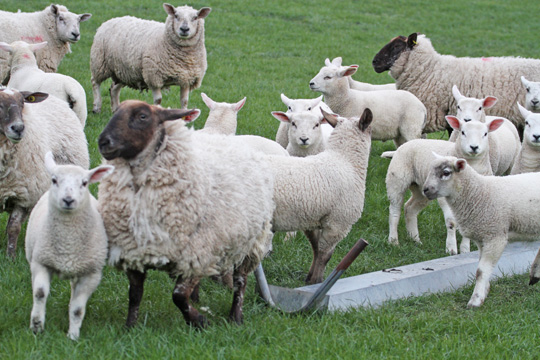At a press conference today (Monday 15 February), the Ulster Farmers’ Union officially launched its Agriculture Manifesto, ‘Difficult Times – But We Can Deliver’, for the Assembly Election. (UFU Manifesto 2016)
The manifesto outlines the key agricultural issues the UFU believes candidates need to commit to addressing if they are to secure farmers’ votes.

Farming and food are central to the local economy. They are worth almost £5 billion and bring 100,000 jobs, many of which are in rural areas. There is real potential to significantly develop the industry, with estimates that with the right support and investment it could deliver up to 15,000 new jobs by 2020. This would benefit the entire local economy. That is why the UFU believes it is vital politicians continue to recognise the importance of the agrifood industry and agree to back its development.
The manifesto highlights the main issues for farmers, topped for now by cash flow difficulties as a result of price volatility. “It is essential politicians look at what can be done in the short term to ease this pressure on farm families, while agreeing to press a new agriculture minister and Executive to address longer term solutions, to bring stability back to farming,” said UFU president, Ian Marshall.
Other key issues in the manifesto include a fair operation of the food supply chain, access to finance, new market development, agrifood marketing, competitiveness, livestock improvement, land mobility/tenure, enhanced research and development and knowledge transfer, livestock and plant disease control programmes, the environment, farm safety, rural services, and the impact of welfare reform on hard-pressed farm families.
The UFU will be circulating copies of its manifesto more widely once the election candidates list has been finalised and will be holding a hustings event for the UFU’s Executive Committee which comprises of Union members across all sectors and from all parts of Northern Ireland at Loughry College, Cookstown on 30 March.
This will be an opportunity to hear more from the main political parties on not only how they would address the current challenges facing agriculture and food but also on how to seize the significant development opportunities that exist during the term of the new Assembly.


























